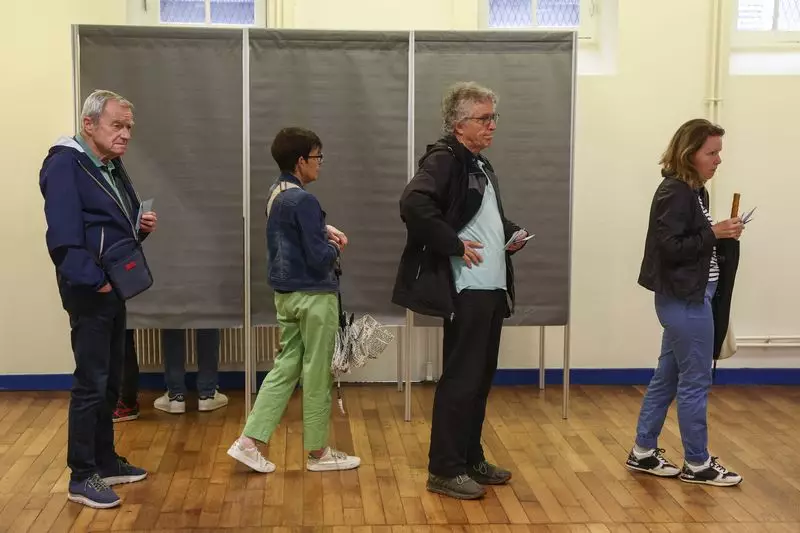French voters have embarked on a crucial journey as they began voting in the first round of a snap parliamentary election that could potentially lead to the country’s first far-right government since World War Two. This unexpected turn of events comes after President Emmanuel Macron’s centrist alliance was defeated in the European elections by Marine Le Pen’s National Rally (RN). The rise of this eurosceptic, anti-immigrant party has positioned them closer to power than ever before, raising concerns about the future of France within the European Union.
At the helm of this drastic political shift is Marine Le Pen, who is confident in her party’s ability to secure an absolute majority in the elections. If successful, the RN’s high-spending economic program and staunch stance on immigration could send shockwaves through French diplomacy. The potential for a far-right government to take over the reins in France could lead to unprecedented turmoil, with Macron and his challenger, Jordan Bardella, vying for control over the country’s direction.
The prospect of a far-right government in France raises concerns not only within the country but also on the international stage. A clear victory for the RN could result in France demanding changes within the European Union, challenging Macron’s vision of greater unity and assertiveness on defense. Additionally, uncertainties loom over France’s stance on the Russia-Ukraine conflict, given Le Pen’s history of pro-Russian sentiment and the party’s ambiguous position on the war.
Opinion polls suggest that the RN has a comfortable lead in the popular vote, followed by a left-wing coalition and Macron’s centrist alliance. The fragmented nature of the political landscape in France makes it difficult to predict the outcome of the parliamentary elections. With various parties and ideologies competing for power, the distribution of seats in the National Assembly remains uncertain, adding to the complexity of the electoral process.
As the far-right gains momentum in France, the traditional strategy of uniting against it may not hold true this time. The RN’s efforts to rebrand and present a more mainstream image raise questions about the party’s true intentions. While Le Pen and Bardella denounce antisemitism, critics argue that their tactics aim to divert attention from the party’s underlying racism and xenophobia.
The French snap parliamentary election signifies a pivotal moment in the country’s political landscape. The rise of the far-right poses daunting challenges and uncertainties, both domestically and internationally. As French voters cast their ballots, the outcome of the election will not only determine the direction of the country but also have far-reaching implications for the European Union as a whole. France stands at a crossroads, with the choice between continuity and change hanging in the balance.


Leave a Reply